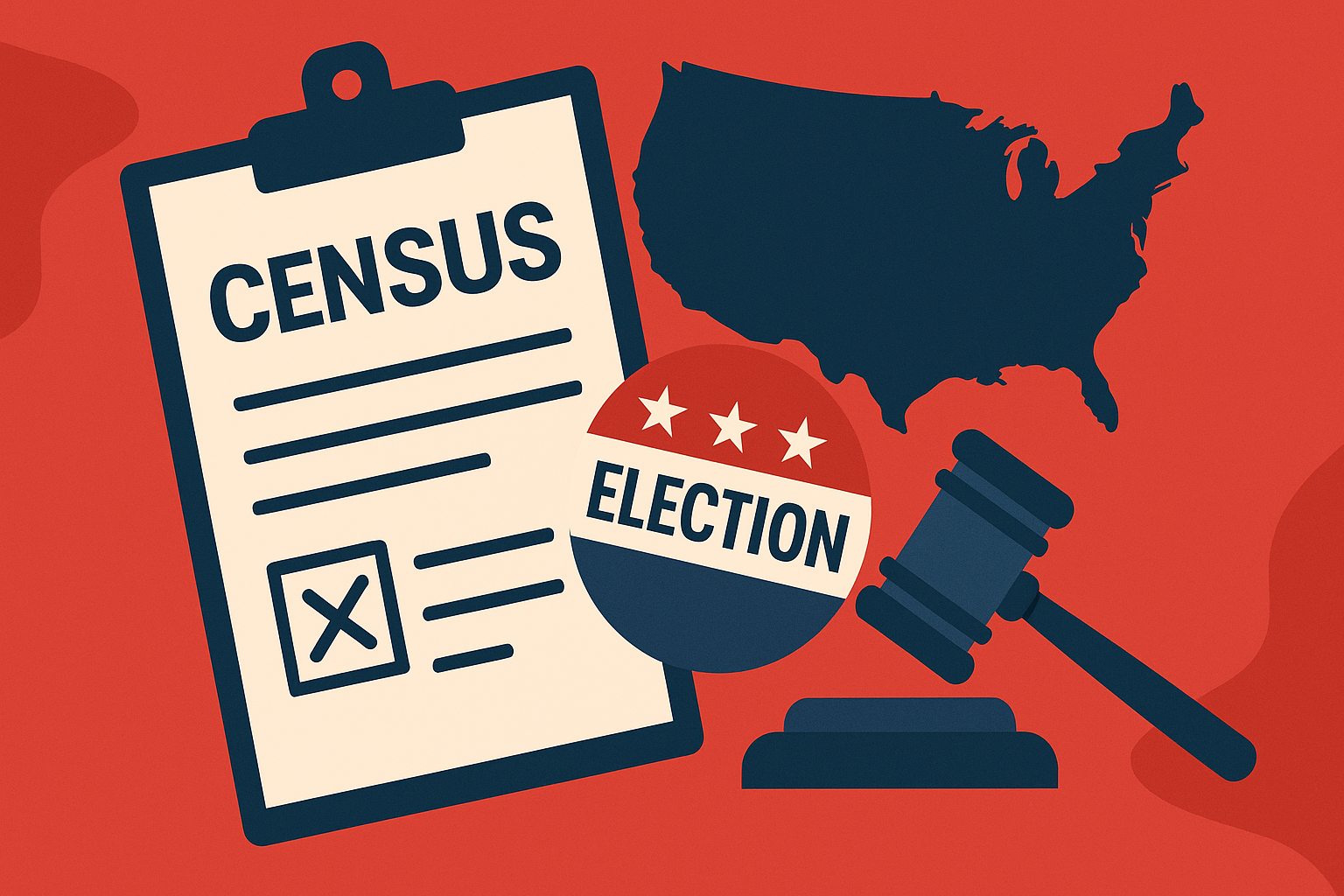President Donald Trump announced on August 7 his intention to initiate a new U.S. census, citing the need to reflect “modern-day facts and figures” and to exclude undocumented immigrants from being counted. The announcement, made via his social media platform, immediately raised legal, constitutional, and political concerns—especially as the nation approaches the pivotal 2026 midterm elections.
Trump’s proposal follows Republican-led efforts in Texas to redraw congressional maps mid-decade, a move traditionally reserved for once-a-decade adjustments after the decennial census. The redistricting aims to secure up to five additional GOP seats, a strategy prompting Democrats in other states to consider retaliatory mapping.
A Constitutional Challenge
The U.S. Constitution mandates a population census every 10 years, most recently conducted in 2020. The results determine congressional representation and federal funding distribution. Legal experts and civil rights advocates warn that a mid-decade census—particularly one excluding undocumented immigrants—could violate federal law and set dangerous precedent.
Sophia Lin Lakin of the ACLU’s Voting Rights Project stated that such actions “would defy the Constitution, federal law, and settled precedent,” pledging immediate legal challenges if the plan advances.
Similarly, John Bisognano of the National Democratic Redistricting Committee labeled Trump’s proposal “a comprehensive campaign to flout the U.S. Constitution in order to predetermine election outcomes.”
GOP Arguments and Political Motives
Supporters of the idea, including Rep. Marjorie Taylor Greene (R-GA) and Hans Von Spakovsky of the Heritage Foundation, argue that an updated census would better reflect population changes and correct previous undercounts—especially in GOP strongholds like Texas and Florida. The Census Bureau acknowledged in 2022 that 14 states had significant discrepancies in their 2020 counts, including undercounts of over half a million people in Texas alone.
Von Spakovsky argued that such a count could justify redistricting every five years and potentially shift more congressional seats to Republican-leaning states.
Trump’s critics, however, say the timing and messaging surrounding the proposal are politically motivated. With Democrats poised to make gains in 2026 and Trump’s approval ratings low, analysts see the move as an attempt to blunt expected losses and consolidate power through structural changes to representation.
Impact on Elections and Electoral Votes
Beyond redistricting, a new census would affect the Electoral College, which assigns each state a number of votes based on its congressional delegation. Shifting representation could influence not only the 2026 midterms but also the 2028 presidential election.
Professor Michael McDonald of the University of Florida noted that current congressional maps are among the fairest in decades due to recent redistricting reforms. He warned that Trump’s push could upend that progress and trigger partisan gerrymandering.
Feasibility and Legal Hurdles
While the Constitution does not explicitly prohibit mid-decade censuses, legal scholars emphasize that the decennial requirement implies limited federal scope for additional national counts. Implementing a new census would face not only judicial scrutiny but logistical challenges, including time constraints, staffing, and budget concerns.
“There’s no legal bar in place that says you can’t redistrict more than once every 10 years,” said Von Spakovsky. Yet political scientist Shawn Donahue cautioned: “It’s not something where you can snap your fingers and it’s going to happen.”
A mid-decade census would almost certainly lead to protracted legal battles. Donahue predicted Democratic-led states would challenge any executive action in court, and precedent from a 1999 Supreme Court ruling bars statistical sampling for congressional apportionment, further complicating any expedited effort.
What Comes Next?
While Trump’s announcement has sparked political momentum in GOP circles—Florida House Speaker Daniel Perez announced a new redistricting committee within hours—the feasibility of carrying out a legally binding census before 2026 remains in serious doubt.
Observers say the proposal, while likely to energize Trump’s base, may serve more as a political talking point than a practical policy path—at least for now.



